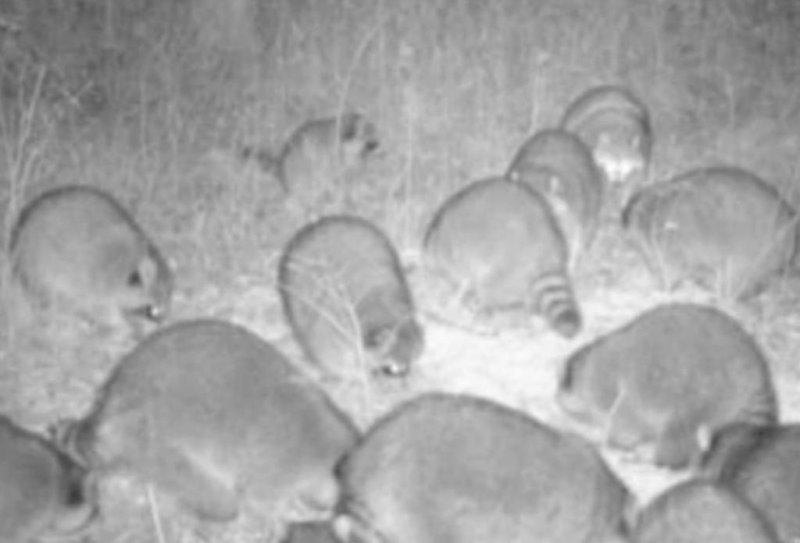Jena Troxler of St. Charles Animal Control said residents had begun feeding the raccoons sweet treats to prevent them from eating the food intended for the feral cats.
"When caretakers feed them that junk food, it keeps them in a separate area, so the cats can feed at the same time," she said.
Troxler said animal control had been monitoring the situation and determined it had gotten out of control.
"We were monitoring the area for four months, three times a week and I personally saw over 31 raccoons that were at least 30-to-40 pounds each," she said. "We were getting 17 feeders, feeding this section in one day. Some of them coming as far away as Harahan."
Animal Control set humane traps for the raccoons and relocated them near the Airline Highway, according to the St. Charles Herald-Guide.
"We simply relocated 16 of them due to cat caretakers reporting leaving food for cats more than once a day...because the abundant raccoons eat it all," Troxler said. "That species can carry round worms. They should not lose inhibition to humans, which is what occurs with feeding."
Read More
- Topics
- Winn Dixie















